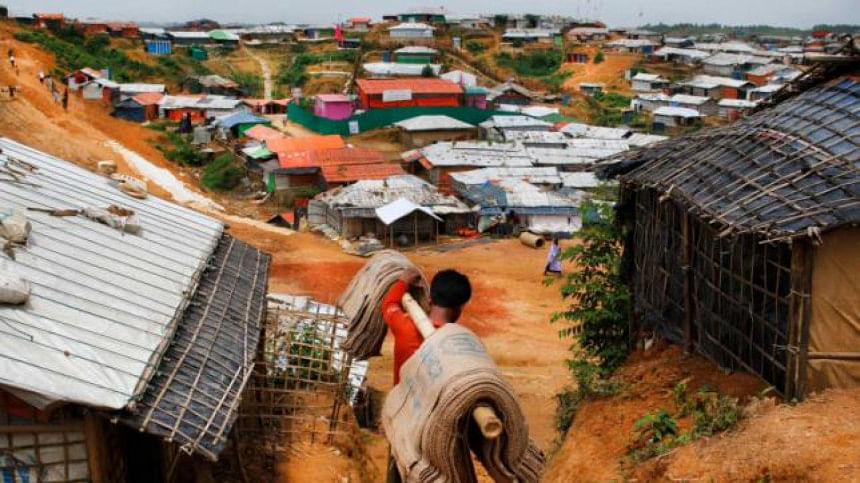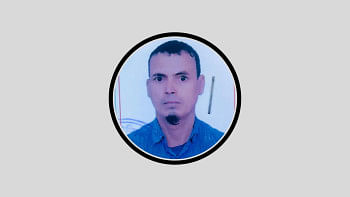Rohingyas in Bangladesh: No question of their integration with locals

Bangladesh does not want any measures that promote integration of the Rohingyas into the local society.
This message was conveyed to the World Bank by the government after the former sought opinions on preparing a global Refugee Policy Review Framework.
"In a meeting with the World Bank and UN officials on Wednesday, we clearly stated that Rohingya repatriation is our only goal. We cannot allow freedom of movement or other privileges, including education and job, like those enjoyed by the Bangladeshis," Foreign Minister AK Abdul Momen told The Daily Star yesterday.
He said the World Bank has sent a letter attaching a document that spoke of Rohingys' freedom of movement, birth certificate, privileges of education and job, and infrastructure.
"This document is not Bangladesh-specific, but we said we won't agree with these suggestions. We agreed to provide education to Rohingyas under Myanmar curriculum and language so that it becomes useful when they return to Myanmar. The World Bank and the UN have agreed."
Momen said Bangladesh is not a signatory to the UN Convention on Refugees and it defines Rohingyas as forcibly displaced Myanmar citizens, not refugees. Myanmar has committed crimes against the Rohingyas and Bangladesh being a victim of the situation extend help, he added.
Some one million Rohingyas currently live in Bangladesh. Most of them had fled a military crackdown in Myanmar's Rakhine state in 2017. Repatriation has not been possible over the years as Rohingyas denied returning, saying conditions in Rakhine were not safe and they had no guarantee of citizenship in Myanmar.
"We asked the World Bank and the United Nations to create conditions in Rakhine so that Rohingyas can return at the earliest," the foreign minister said.
Asked about the proposed Refugee Policy Review Framework, Mercy Tembon, World Bank country director for Bangladesh and Bhutan, said it is supporting Bangladesh with $590 million grant financing to address the needs of Rohingyas until their safe and voluntary return to Myanmar, and to minimize the impact on the host communities.
In an email reply, she said the Refugee Policy Review Framework aims at evaluating the effectiveness of the World Bank's support to refugee hosting countries across the world in their efforts to strengthen relevant policies and institutions to best manage the situation.
"The review for Bangladesh summarises the existing policies, practices and implementation," Tembon said.
A finance ministry official said the WB wrote a letter to the Economic Relations Division early June and copies of it were sent to several ministries, including foreign affairs and disaster management, for opinions.
"We are collating the opinions and will send those to the World Bank," he said, adding that the last date for submitting opinions was July 31, but it was extended by a few days.
According to the WB, it reviews the refugee policy framework every three years before mobilising fund under International Development Assistance (IDA) window, which provides grants for the refugee hosting countries. Presently, 16 refugee hosting countries are provided grant under this window.
Different countries have different policies on refugee management, but the global lender only looks at how effectively the fund is being used.
For example, Pakistan provides mobile SIM cards to refugees to track them. Some countries allow freedom of movement and some others don't. That is the policy of particular countries, officials said.
They said the World Bank also in its review policy framework wrote that the fund is used not only for the refugees but also for the local host communities.
Foreign Minister Momen said the international community had recommended giving Rohingyas freedom of movement, scope for jobs and other privileges.
"We cannot do it. We call upon the world leaders, and the UN to ensure quick repatriation of the Rohingyas. We already have enough burden to bear," he said.


 For all latest news, follow The Daily Star's Google News channel.
For all latest news, follow The Daily Star's Google News channel. 



Comments